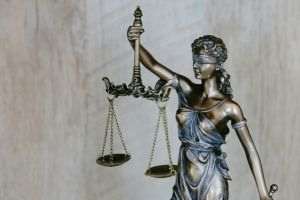By the time you are reading this article, my fellow Americans and I will have elected our next president, whom the rest of the world will have to live with for at least four years. Most foreigners are hoping that Obama is going to win. This is because, in the U.S., Obama is preferred by the intellectuals and the well-to-do, while McCain is mainly the option of the uneducated poor from both urban and rural environments; and in today"s world, elites have become global, while the poor remain mainly local. Everybody sympathises with Obama: he has the charisma of a movie star, he speaks well and his speeches about world peace and cooperation could have been written by any European Union or U.N. official. In turn, McCain speaks of the American power and pride and, although both are important forces, I believe that most people think that America is rather too powerful than "not powerful enough." In Europe, speeches about national pride are generally reserved for the ultra-right: everybody else speaks about being part of a Union, a somewhat bigger fraction. Most Europeans must think of McCain as an extremist.
In fact, whoever is going to win these elections will have unthinkable problems that, only six years ago, would have seem as improbable as the election of a U.S. president named "Hussein:" a banking system practically made socialist, involvement in two brutal and unpopular wars and a collapsing economy. Moreover, the United States, once the most admired democracy in many parts of the world, is now one of the most despised countries on the planet, which many see as the ultra-arrogant power that needs to be brought to moderation. In Eastern Europe, expectations from the United States were, of course, among the highest and, in many places, the disappointment is also the greatest: while the United States is obviously not a new Soviet Union, it is also not an ideal democracy ready to set its own interests aside in favour of the poor.
American citizens are asking politicians for a high living standard and turn a deaf ear to the suffering caused to other countries in order to get it; the U.S. is starting strange wars and, strangely enough, seems happy to lose them: like an elephant bothering a bee hive, taking the sting and walking away. The U.S. seems to care little about what other countries may think of the United States, although it makes its power felt everywhere and no one, no matter where, can live completely disconnected from U.S. influence. Its ideals are noble: liberty, democracy, social mobility, a high living standard for everyone, anywhere in the world; however, it sometimes seems to be as far from those ideals as the Soviet Union was from the ideals of communism. Under Bush, the U.S. ignored the opinions of the entire world, and the world responded with distrust and contempt. The world is hoping that Obama would solve these problems and is afraid that McCain would make them worse.
These are the negative facts about America and it seems that, lately, they are the main concern of the entire world. But since we, Americans, are electing a new president, we should also remember the good things about America: its people, far from being crazy, strongly believe in human kindness - so strongly that they just amaze Europe, where people are more cynical - and have always remedied the intemperance of their nation. Nixon ended in the Watergate scandal and we will not remember Bush as a great fighter, but a great failure and our hope and self-confidence come from somewhere else than our military power. They come from an immovable faith that everyone deserves a chance in life; that no one should be persecuted for their beliefs, not even those we find repugnant; that fairness is the most important principle of public life; and that that those from poor and powerless families are as important as the rich.
Are we betraying these ideals? Every day and in many ways. We are a strong country and the strong have often stepped on the weak without even noticing. But are these really our ideals, or are we a nation of hypocrites? These are our ideals and this is the reason why Obama"s biography has become so important for these elections: I am sure that, if he wins, at least one small village in Kenya will be less cynical about the old local cliche that anyone can become the president of the United States when they grow up. America is powerful and power corrupts: no human being or nation is an exception and, for the past eight years, we have seen corruption at work. But the United States remains the country that fought hard against its own racist laws and won; this has and will welcome millions of poor immigrants (my father was one), who are told just a few weeks later to make themselves at home because this is their nation. It is the same country that led a technological boom and made the world better, not only for the rich, but also for the poor; and should a serious threat to the world emerge, one like fascism or the stalinist terror, America will be the first called to defend the idea of liberty.
For the past eight years, as an American, I have been ashamed of my country, which had always made me proud; looking at the Abu Ghraib pictures, reading about Guantanamo Bay, Ialmost forgot about our virtues, the virtues that have united us again for these elections. By the time you read this, either McCain or Obama will have beenelected president and, according to their statements, will have made the following decisions: Guantanamo and that mentality, God willing, will have been wiped off the face of the Earth. As a Jew, I say a prayer on occasions like this and perhaps our faithful readers will join me: May God give him the wisdom to run the country well! My hope for the country is that the things we believe in, liberty, mobility, honesty, may overcome the threats and, by using our power to help the world and not harm it, we regain everyone"s respect.


























































